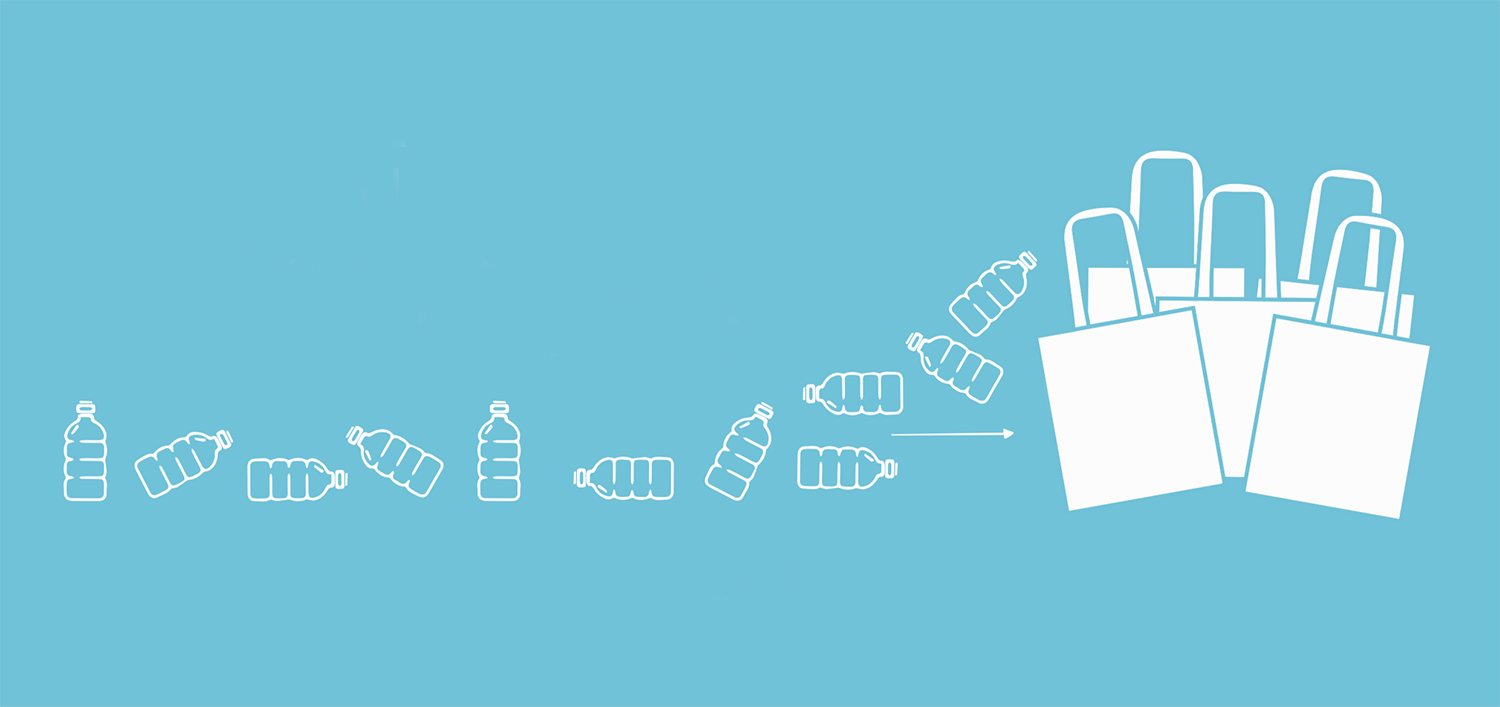What is rPET?

What is rPET?
rPET is the abbreviation for recycled polyethylene terephthalate or, essentially, recycled plastic. Polyethylene terephthalate (PET) is a polymer widely used in manufacturing, especially for food and beverages packaging. It is not biodegradable and therefore poses a significant threat to the planet, polluting natural habitats, killing wildlife, breaking down into micro-plastics and even contaminating human life (micro-plastics have been found in the placentas of unborn babies). The mounting PET waste filling up landfills, rivers and seabeds needs to be recycled and this is what rPET initiatives seek to achieve.
Most household plastic containers are made from PET. It is a versatile plastic, used for shampoo bottles, cleaning products, sandwich packaging, condiment bottles and, most famously, drinks bottles (accounting for around 30% of global production). As a result, rPET is often marketed as a material made from recycled water bottles, which allows for a powerful visual but is not strictly true. PET can be found in clothing (as polyester), bags, bedding, wet wipes and even teabags, so recycling this plastic isn’t so simple as putting water bottles into a recycling bin.
Is rPET a sustainable solution to plastic waste?
rPET is indisputably a more sustainable option than un-recycled (or virgin) PET. Recycled PET has a lower carbon footprint than PET (around 0.3 kg CO2/kg compared to 1.5 kg CO2/kg). It reduces PET plastic waste in landfills and elsewhere, taking materials which cannot be naturally degraded, or at least not in our lifetime, and repurposing them for product manufacturing which would rely, otherwise, on raw plastics. It has also become a fashionable material, with savvy brands keen to demonstrate a commitment to sustainability. In 2019, popular drinks brand, Coca Cola, announced that bottles across the smart water lineup would move to 100% recycled plastic, or rPET. The brand has also since switched to clear packaging for drinks like Sprite, as clear plastic is more easily recycled.
These changes seem positive and, compared to using virgin PET, are a step in the right direction for brands like Coca Cola. However, rPET is not without its critics, who claim that the material still promotes disposable packaging and plastic waste, since many people still do not recycle their plastics. Coca Cola and other brands have introduced initiatives to counter this, with “Recycle Me” messaging stamped on drinks products along with environmental iconography. However, in a world where the UK recycling rate of households is less than 50% and with the global plastic market size continually growing (at a predicted growth rate of 3.2% from 2020 to 2027), it is necessary to eliminate plastic packaging as a priority.
What is the alternative to rPET?
The most responsible alternative to plastic packaging, including recycled PET plastic, is any reusable and biodegradable material. In reality this is actually hard to find, since plastic, however harmful to the environment, is incredibly useful when it comes to packaging, particularly for beverages and food products. Plastic packaging protects these products from damage by moisture, humidity, gases, microorganisms, insects and light. It preserves products for longer, prevents spillages and allows for transportation of products over large distances. For a modern society used to certain standards of hygiene, food variety and preservation, it becomes very difficult to find an alternative to PET and rPET packaging, particularly if that material is to be 100% sustainable.
As it stands, the best way to approach PET plastic substitution is to assess products individually, rather than taking a one-size-fits-all approach. For clothes or bags manufactured with PET (or polyester), buyers can opt for organic materials like wool, cotton and jute. PET plastic shampoo bottles can be replaced with shampoo bars, with the same applying to hand soap, conditioner and other cream-based products. Much of plastic food packaging can be supplanted by cardboard, including sandwich packaging, food containers and party trays. Plastic bottles to water, juice, condiments and other liquids can be replaced with reusable stainless steel bottles, glass containers and bottles produced from more novel materials like bamboo.
The bottom line
When it comes to PET plastic waste, rPET is certainly a better alternative. It reduces the amount of waste in landfills, repurposing a material which is not naturally degraded. Recycled PET has a lower carbon footprint that PET and promotes the idea of recycled materials amongst uninformed consumers. However, it is a short-term approach to a long-term problem: that of the continuing and growing pollution of plastics. The most sustainable solution, as it stands, is to opt for plastic-free materials wherever possible and boycott single-use plastics as a priority.







